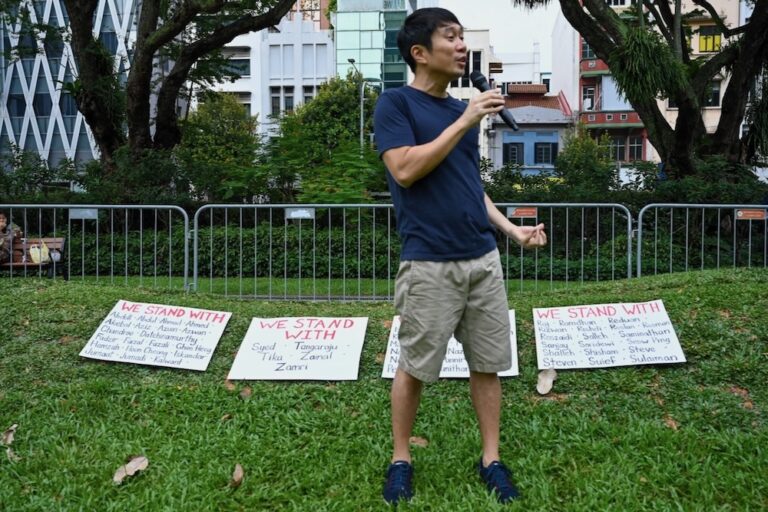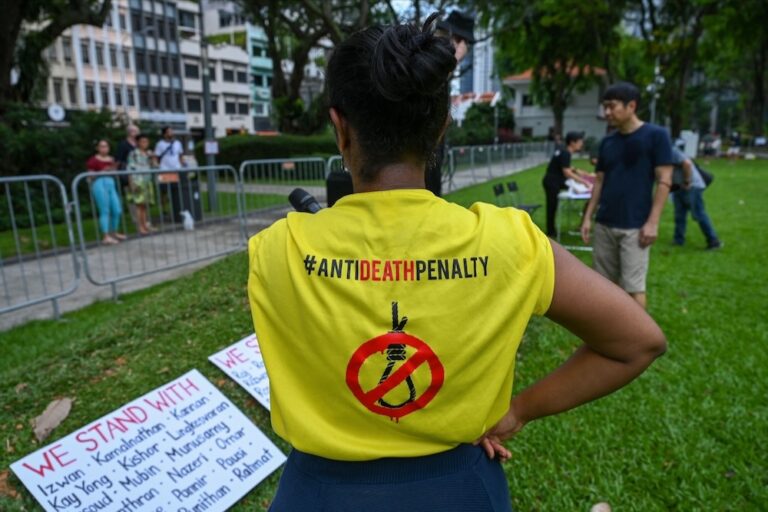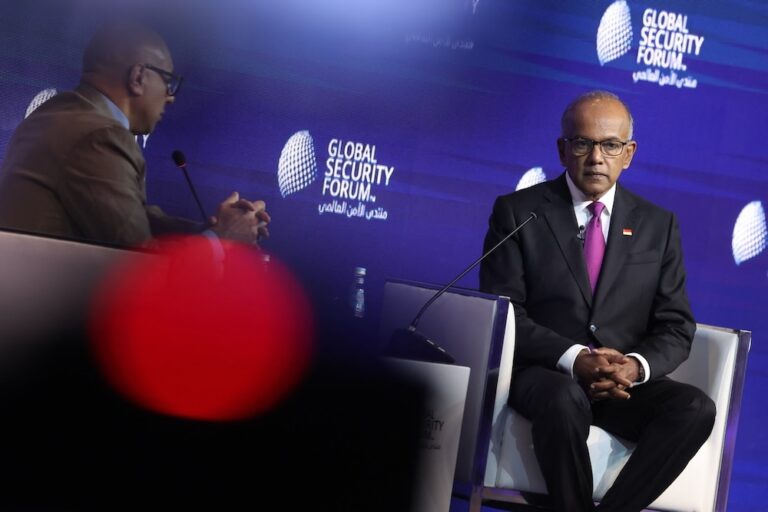(SEAPA/IFEX) – Singaporeans are abuzz yet cautious about government pledges to ease restrictions on free speech and public assembly in the city state. Writers, filmmakers, activists, and politicians are either expressing optimism or warning against too much of it, after the country’s prime minister promised to allow more issues to be ventilated in the notoriously […]
(SEAPA/IFEX) – Singaporeans are abuzz yet cautious about government pledges to ease restrictions on free speech and public assembly in the city state. Writers, filmmakers, activists, and politicians are either expressing optimism or warning against too much of it, after the country’s prime minister promised to allow more issues to be ventilated in the notoriously restrictive political environment of Singapore – subject to certain “ideals” of factuality and nonpartisanship.
Singapore Prime Minister Lee Hsien Loong, acknowledging the advent of new media, announced during the National Day Rally on 17 August 2008 that the government will ease the ban on political videos and outdoor public demonstrations, media reports said.
“An outright ban is no longer sensible,” he said. At the same time, he noted that such relaxation of restrictions will still be guided by what he called “safeguards.”
“Some things are obviously alright; factual footage, documentaries, recordings of live events. But I think some things should still be off limits . . . (for instance) if you made a political commercial so that it’s purely made-up material, partisan stuff, footage distorted to create a slanted impression,” he said.
Channel News Asia reported that the prime minister will allow podcasts, videocasts and election materials in the next general election, unlike in the previous one. However, he cautioned those who upload such material online to maintain accountability and responsibility.
“In between what is OK and what is not OK, there will be grey areas. But I think we can deal with this,” the prime minister said.
The Advisory Council on the Impact of New Media on Society, led by former “Singapore Press Holdings” editor-in-chief Cheong Yip Seng, will present its recommendations on these issues in late August 2008.
The “Straits Times” reported the prime minister as saying that political films will be dealt with in ways similar to non-political films, with censorship and film classification standards, with a panel to decide whether or not a political film would pass.
Singaporean film makers expressed mixed feelings about this development.
“This is by far the most obvious relaxation of political space in Singapore in the past 20 years. It will lessen the climate of fear,” according to film maker Martyn See who had two of his films banned in recent years. He added that he plans to re-submit said films, “Singapore Rebel” and “Zahari’s 17 Years,” to the censors for re-appraisal.
Senior Research Fellow Tan Tarn How from the Institute of Policy Studies preferred that no conditions be imposed. “It doesn’t make sense to assume that most people are most of the time not smart enough to tell the good from the bad, and truth from falsehood,” he said. Film maker Tan Pin Pin, nonetheless, expressed satisfaction at this development. “A gesture has been made, and I guess it’s a positive thing. This is the start of a long journey, towards less frenetic governance,” she said.
Although restriction remains for outdoor demonstrations, the prime minister said the government will allow outdoor public demonstrations at the Speakers’ Corner, a public space for free speeches. However, demonstrators must adhere to basic rules of law and order, and avoid issues like race, language or religion.
The prime minister said there is no need for the police to be involved. Instead, the Hong Lim Park authority will manage the Speakers’ Corner.
Lee said, “The overall thrust of all these changes is to liberalise our society, to widen space for expression and participation. We encourage more citizens to engage in debate, to participate in building our shared future.
The Southeast Asian Press Alliance (www.seapa.org) is a coalition of press freedom advocacy groups from Indonesia, the Philippines and Thailand. Established in November 1998, it is the only regional network with the specific mandate of promoting and protecting press freedom throughout Southeast Asia. SEAPA is composed of the Alliance of Independent Journalists (Indonesia), the Jakarta-based Institute for the Study of the Free Flow of Information (ISAI), the Manila-based Center for Media Freedom and Responsibility, the Philippine Center for Investigative Journalism, and the Thai Journalists Association. SEAPA also has partners in Malaysia, Cambodia, and East Timor, and undertakes projects and programs for press freedom throughout the region.
Updates the Martyn See case arising from the “Singapore Rebel” film: http://ifex.org/en/content/view/full/69473
Updates the Martyn See case arising from the “Zahari?s 17 Years” film: http://ifex.org/en/content/view/full/82699


